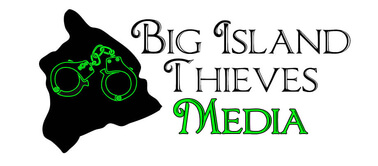Honolulu, Hawaiʻi – Governor Josh Green, M.D., has concluded the 2025 legislative session’s bill signing period, taking action on 313 of the 321 enrolled bills. The Governor participated in 13 bill signing ceremonies to highlight various pieces of legislation. Lieutenant Governor Sylvia Luke led two bill signing ceremonies as acting governor, focusing on broadband access and expanded Preschool Open Doors initiatives.
Key Legislation Enacted During the 2025 Session Includes:
- State Budget (HB 300, Act 250, SLH 2025): Signed on June 30, the executive biennium budget appropriates $19.8 billion across all means of financing for fiscal year 2026 and $19.7 billion for fiscal year 2027. This includes $10.53 billion in general funds for fiscal 2026 and $10.58 billion for fiscal 2027. Capital Improvement Project (CIP) funding within the budget totals $3.3 billion for fiscal 2026 and $2.3 billion for fiscal 2027 across all means of financing. General obligation bonds allocated for statewide construction projects are $1.4 billion for fiscal 2026 and $432 million for fiscal 2027. Governor Green exercised line-item vetoes totaling $110 million across the fiscal biennium, which represents less than half a percent of the overall state budget.
- Green Fee (SB 1396, Act 96, SLH 2025): Signed on May 27, this legislation establishes what is described as the nation’s first Green Fee. It aims to address climate challenges by strengthening infrastructure and funding initiatives through a 0.75% increase to the transient accommodation tax. Revenues from this increase are designated to support environmental stewardship, climate and hazard mitigation, and sustainable tourism.
- Free School Meals (SB 1300, Act 139, SLH 2025): Signed on May 30, this bill expands access to free school meals for Hawaiʻi public school students. Beginning in the 2025-26 school year, free meals will be available to all qualifying students under the National School Lunch Program. Eligibility will further expand in the following school year to include families with income below 300% of the federal poverty level. The act appropriates $3.3 million to the Department of Education over the two school years to subsidize these meals.
- Fireworks Crimes (HB 1483, Act 243, SLH 2025): Signed on June 30, this legislation strengthens penalties for fireworks crimes. The provisions aim to provide stronger deterrents and additional regulatory measures to support the prosecution of fireworks-related offenses. It also streamlines the judicial process by amending the traffic and emergency period infractions adjudication system to include fireworks infractions, intended to expedite the handling of high-volume violations.
- Property Insurance Stabilization (SB 1044, Act 296, SLH 2025): Signed on July 7, this bill reactivates the Hawaiʻi Hurricane Relief Fund (HHRF) to provide insurance coverage when the private market does not. It also enhances the powers of the Hawaiʻi Property Insurance Association (HPIA), establishes the Condominium Loan Program, and mandates a comprehensive study by the Insurance Commissioner for market stabilization strategies.
- Maui Wildfires Settlement Trust Fund (HB 1001, Act 301, SLH 2025): Signed on July 8, this bill establishes the Maui Wildfires Settlement Trust Fund to support funding for settlement claims arising from the 2023 Maui wildfires. It appropriates $807.5 million as the state’s portion of the total $4.037 billion settlement agreement. The funding is intended to provide timely compensation for survivors as an alternative to lengthy litigation, with provisions specifying how property and casualty insurance companies can recover payments.
- Fire Preparedness (HB 1064, Act 302, SLH 2025): Also signed on July 8, this measure aims to improve the state’s fire preparedness and response following the 2023 Maui wildfires, based on recommendations from the Fire Safety Research Institute’s Phase Three report. Act 302 transfers the Office of the State Fire Marshal to the Department of Law Enforcement and establishes the State Fire Marshal role, the first in the state in nearly 46 years, clarifying roles, duties, and reporting requirements.
Governor Green signed more than 300 additional bills, separate from the public bill signing ceremonies.
Governor Green acknowledged the legislative session’s outcomes, stating, “This legislative session delivered many important wins, and I’m deeply grateful to the Hawai‘i State Legislature for championing measures that serve our people and protect our ‘āina. At the same time, we faced real challenges, especially the uncertainty of federal funding, which put critical lifelines for our communities at risk.” He also conveyed his commitment to advocating for administrative priorities including housing, homelessness, healthcare, wellness and resilience, and climate action.



